“Whatever you’re doing, you should feel it’s not good enough, and you want to do better,” says Greg Daniels, who is sitting across from me at his “beach bistro” restaurant known as Salt Air. We’re in Venice, CA and the service staff is making the rounds, placing small plates, glasses, and silverware in preparation of today’s lunch fare. The over-abundance of natural, California sunlight making its way into the space only reaffirms the feeling of being on the edge of the west coast.
Originally from Buffalo, New York, Greg moved out to LA two years ago to open Salt Air, his first restaurant as Executive Chef. Having worked under culinary giant Jean-Georges at Perry St in New York, Greg brings a sense of refinement, freshness, and simplicity that makes his menu thrive in a place like Venice where the simple life is encouraged. From lobster rolls to fresh oysters to pea toast, the light fare accompanied with a glass of rosé and the ocean breeze will have anyone falling in love with what a bistro lifestyle might look like in Southern California.
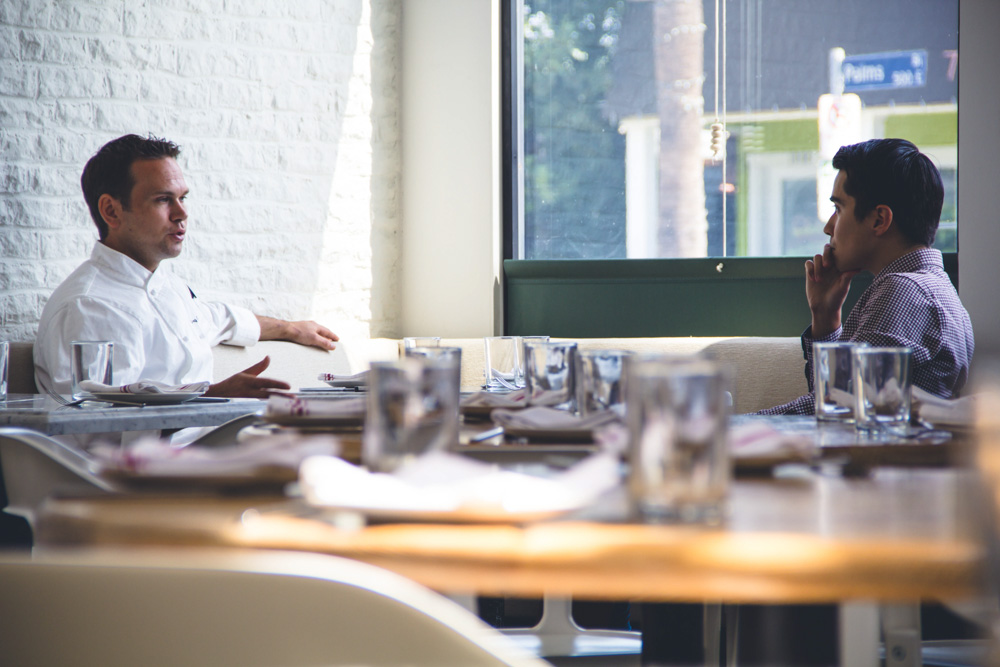


We make our way into the tiny kitchen where I stand beside the oyster bar, the pastry station, and two large boxes filled with freshly delivered (live) lobsters, ready to be broken down and cooked. I try to stay out of the way of the cooks while also staying outside my photographer’s frame—it’s a juggling act I know all too well.
Without hesitation, Greg lifts one of the many live lobsters and—with his bare hands—breaks apart the tail and then the claws. He goes slow in the beginning to demonstrate the technique and then proceeds to break down many, many more in a matter of minutes with extreme speed and precision. The remnants of each lobster twitch for a few moments before being cooked in a large pot of boiling water.
With a grounded sensibility and an acute understanding of what it takes to become chef, it’s no question that Greg is a cook at heart with a passion for the craft and a work ethic to back it up. What some might see as a hip and new bistro by the beach, I see an accomplishment the size of a mountain with a cook at the top that can claim it as chef.
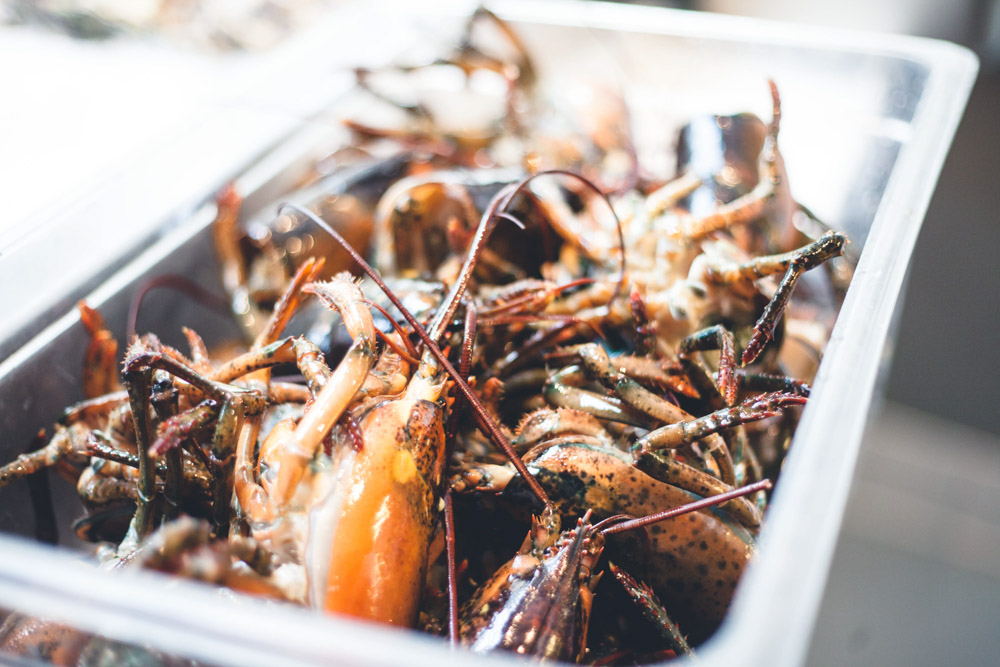
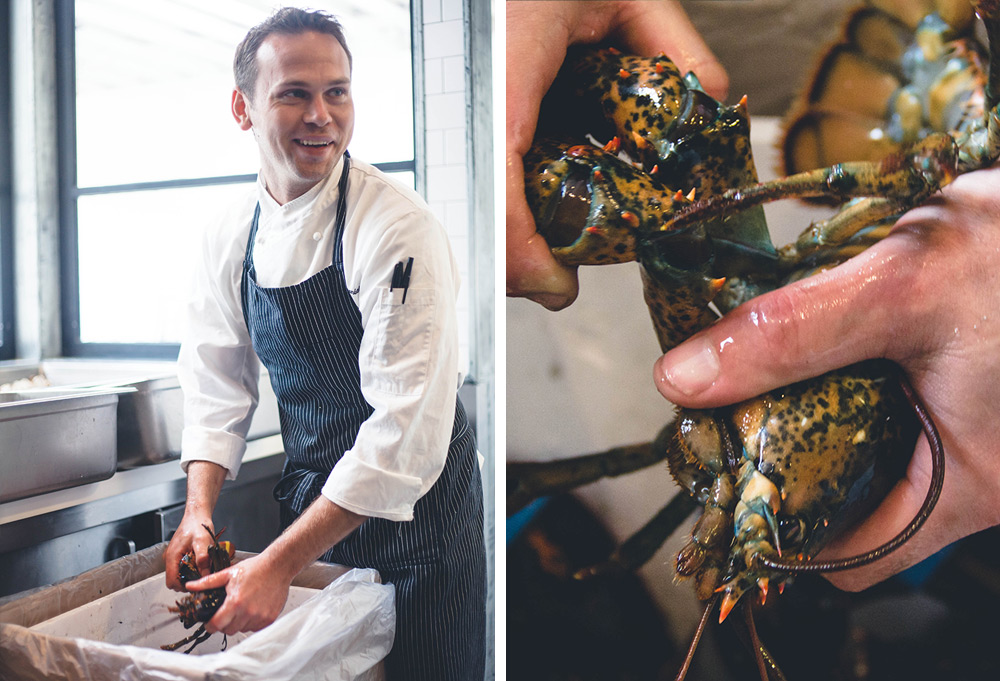
Did food always play a major role growing up?
My mom can’t cook, so my dad always did the cooking. I think when that happens, the son gets involved. I always loved cooking. I was one of the few to be excited for home ec class, which is an embarrassing thing to admit! My buddies would razz me for it.
I always loved cooking and a worked at a few restaurants here and there, but nothing major. So after college, I said screw it, and moved to New York to give it a real shot. I tried to eat it all up and get as much experience as I could. I think a lot of people go into this with this romantic idea of what it’s going to be, thinking things like, “I’m going to be an immediate success,” and, “I’m going to have a restaurant with my name on it,” and it doesn’t happen. I’d say, in terms of the class I graduated with, I would be surprised if more than five of them are still cooking.
I got lucky landing a job at Perry St in which Jean-Georges was someone I seeked out in working for. He’s a monster. Everything the guy does turns to gold, ya know? I line-cooked there and worked my way up. His son, Cedric, took over as CDC [Chef de Cuisine], right around the time I was a tournant type position. A sous chef position opened up and I got an opportunity to do that. I did that for long enough to see the ins and outs. It paid off.
Do you feel like culinary school is required in the industry?
I don’t, but it depends on the person. I am better to have gone to culinary school. You can’t control what your experiences are necessarily going to be when you take that first kitchen job. For example, had I never gone to culinary school, I would have no pastry experience. I think people that skip culinary school definitely miss something. You might get a guy in here that has worked at a bunch of places and you tell him to do a brunoise and he doesn’t know what you’re talking about. You can teach, but at the same time, you could have cut that conversation out. I think people that do have that in their pocket, they move up a little quicker. That said, I think there are a ton of people that write a check—$50 grand—go to culinary school, and you don’t really get to know what it’s going to be like once you’re out there until you take that first job. That’s when you realize, “Shit, I’m going to be working 50 hours a week for $10 an hour and living in Manhattan or Brooklyn.” It’s a tough life and people burn out. You’re working until midnight, 1am, or 2am. That kinda hits you all at once.
At CIA [The Culinary Institute of America] in Hyde Park, they require people to have like six months of some food service—whether it’s working at McDonalds or whatever, as long as they worked food service. At least they get that it’s not this cake job that they’re gonna walk in, hang out, and cook the food they love. No, it’s not that. You get to that point where you have the creative control and you get to do what you want. There’s that reward, something tangible, like you have a restaurant with your name attached to it, it’s your menu, your food, and your staff. There’s a huge sense of accomplishment there. But! It takes a long time to get to that point. A lot of people can’t swallow that pill. And to be honest, most chefs aren’t that nice. The learning curve is steep, they don’t have time for it, they work harder than you do, so they don’t have patience—it’s not for everybody.
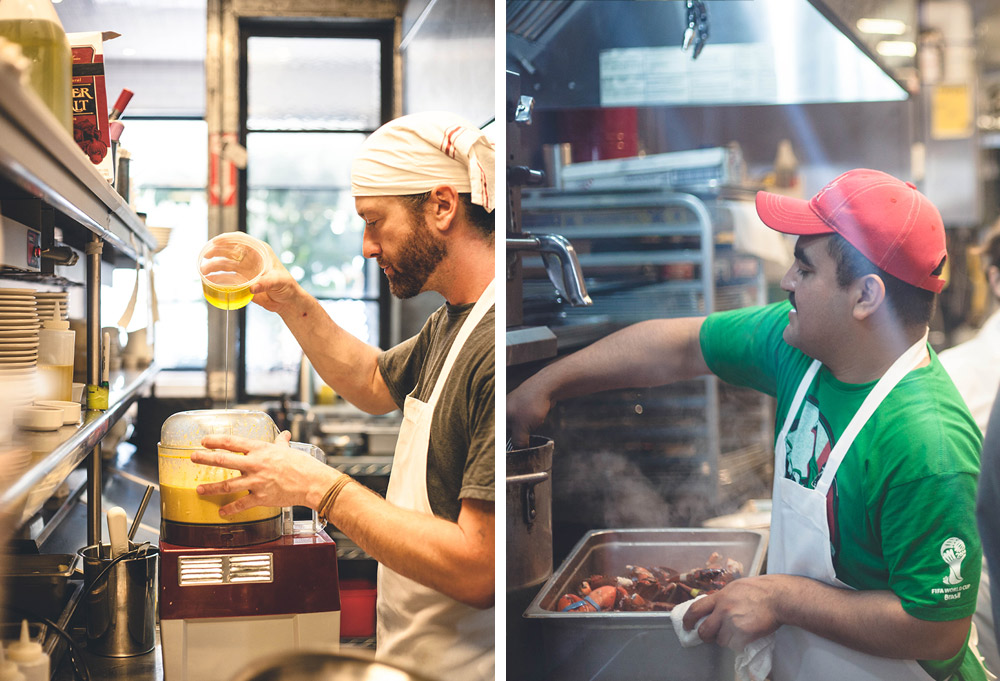
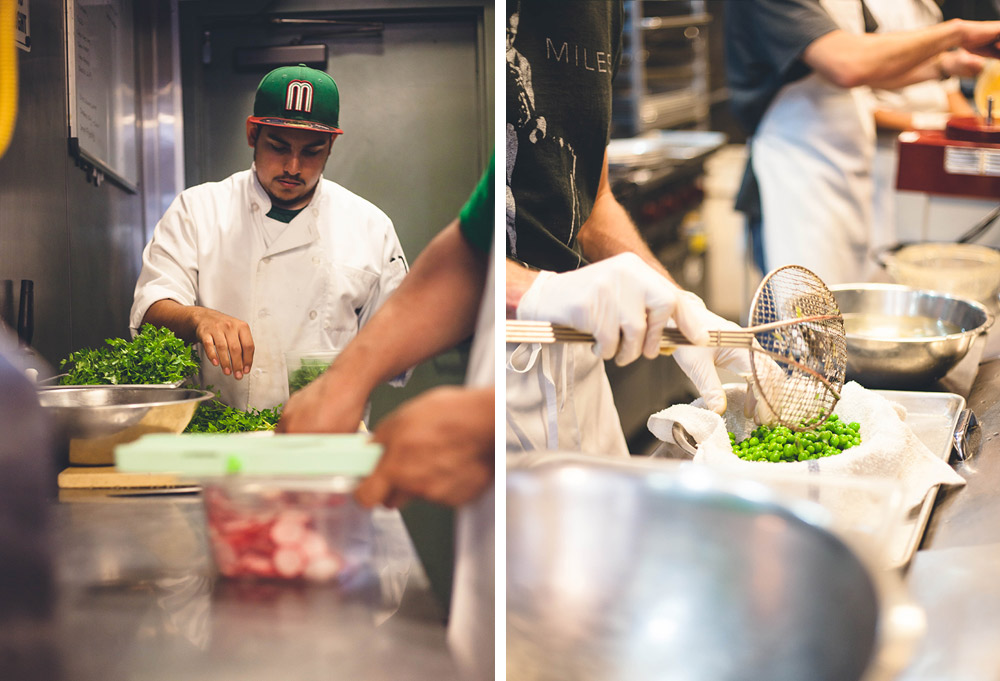
Salt Air has been called a “beach bistro.” What are you looking to accomplish with your menu?
My flavors tend to lean slightly Asian, the technique seems to be French, and the flavors tend to be lighter and fresher. Every time I do a menu change, every time I think about putting something new on the menu, or rolling something out, I think, “Is it true to concept?”
The concept here is casual but upscale food. It’s a place you can eat several times a week and not get bored. It can be a special occasion place but it doesn’t have to be. You’re trying to hit all of those things. You want it to be crowd-pleasing, but you also don’t want it to be boring.
All in all, I’m just trying to cook good food. Hopefully everything else follows.
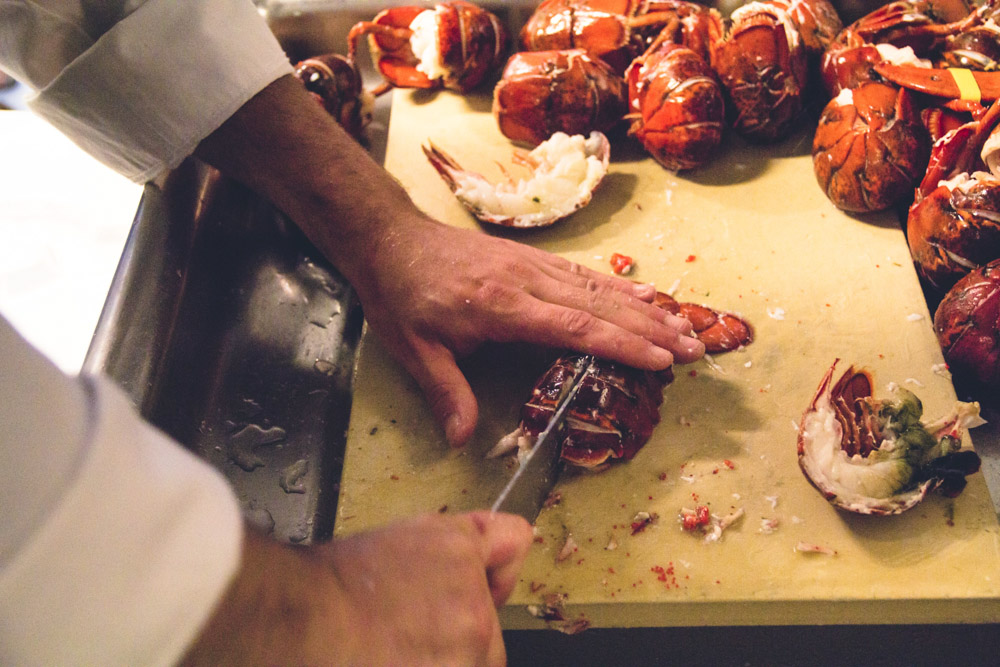
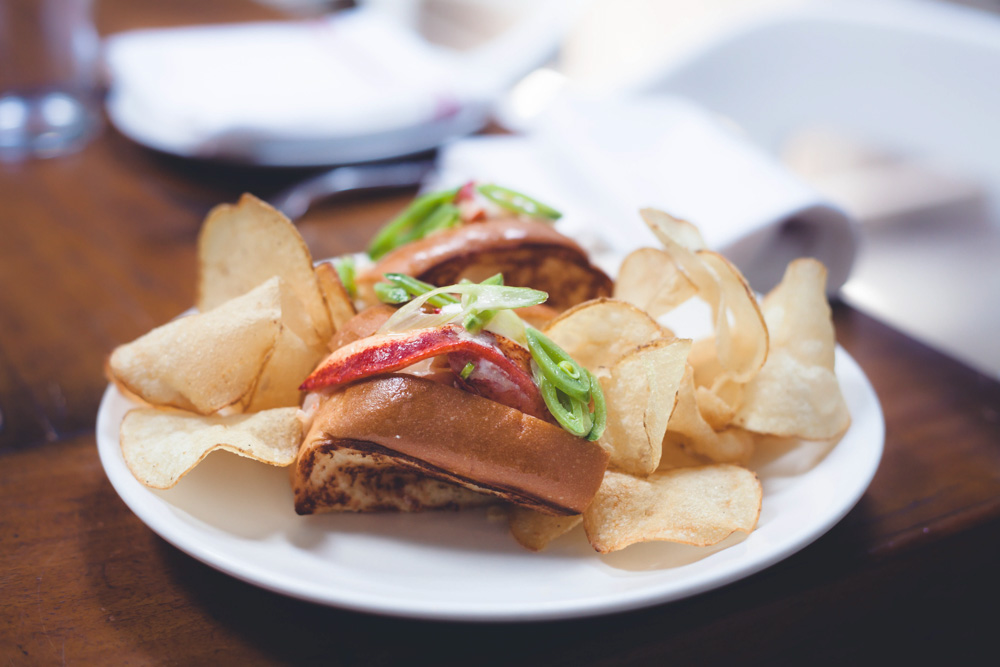
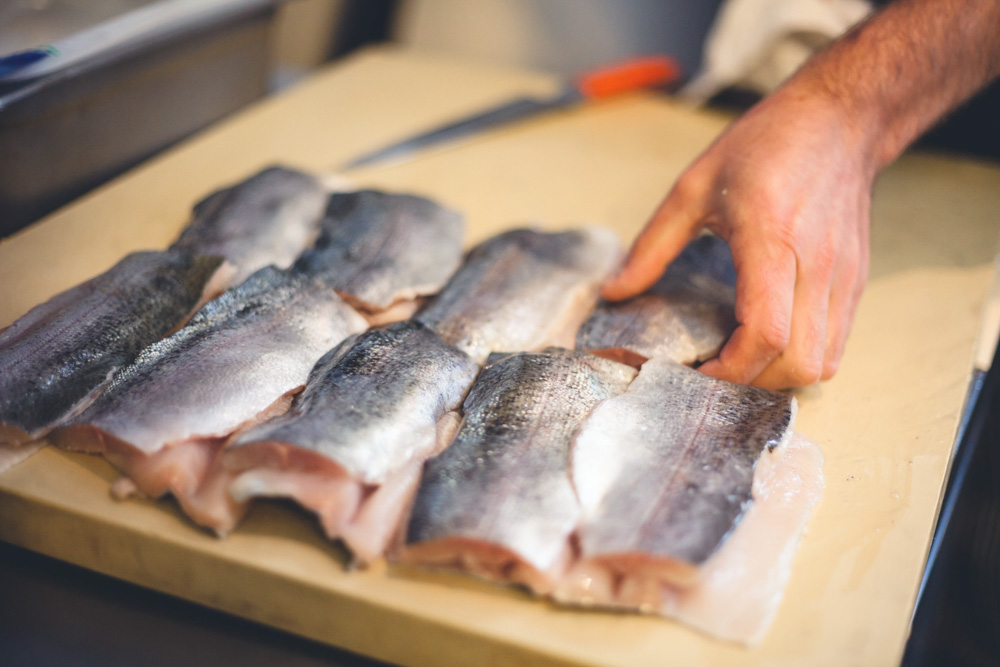
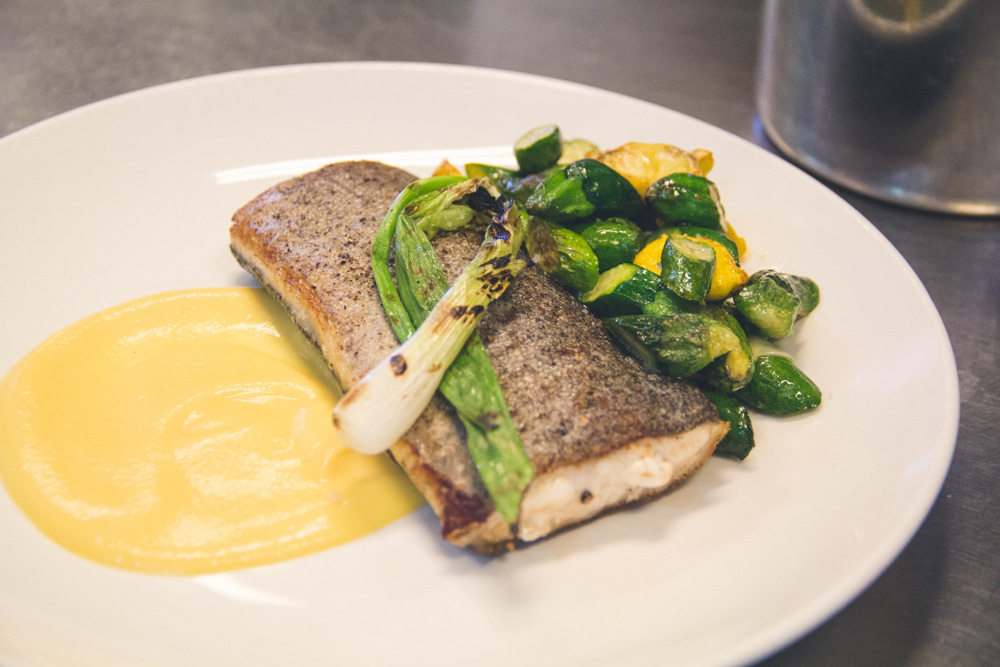
What do you look for in fish?
I try to be a little eclectic there. We’re bringing octopus in from the Mediterranean, we use New Zealand snapper, and I get a lot of stuff from the east coast. I’ve fallen in love with east coast oysters but I like to mix in west coast as well. I’ll pick a protein, and try to find the best of that protein. It doesn’t have to be California—a lot of times it is. I just got in 600 oysters today and most of them are Cape Cod, but then we mix in some from Fanny Bay on the west coast.
What inspires you?
The basic, most important thing is that I love doing this. I am inspired by having a staff, a team of people. You open a restaurant, you don’t realize it—and I’m stealing this from our Director of Operations—those people will become best friends, date, start relationships, have marriages, or become roommates. You plant that one seed of opening the door. You create a world for these people. That’s inspiring to me. It’s like a team sport. Everyone has their position and they play it. Hopefully you win.
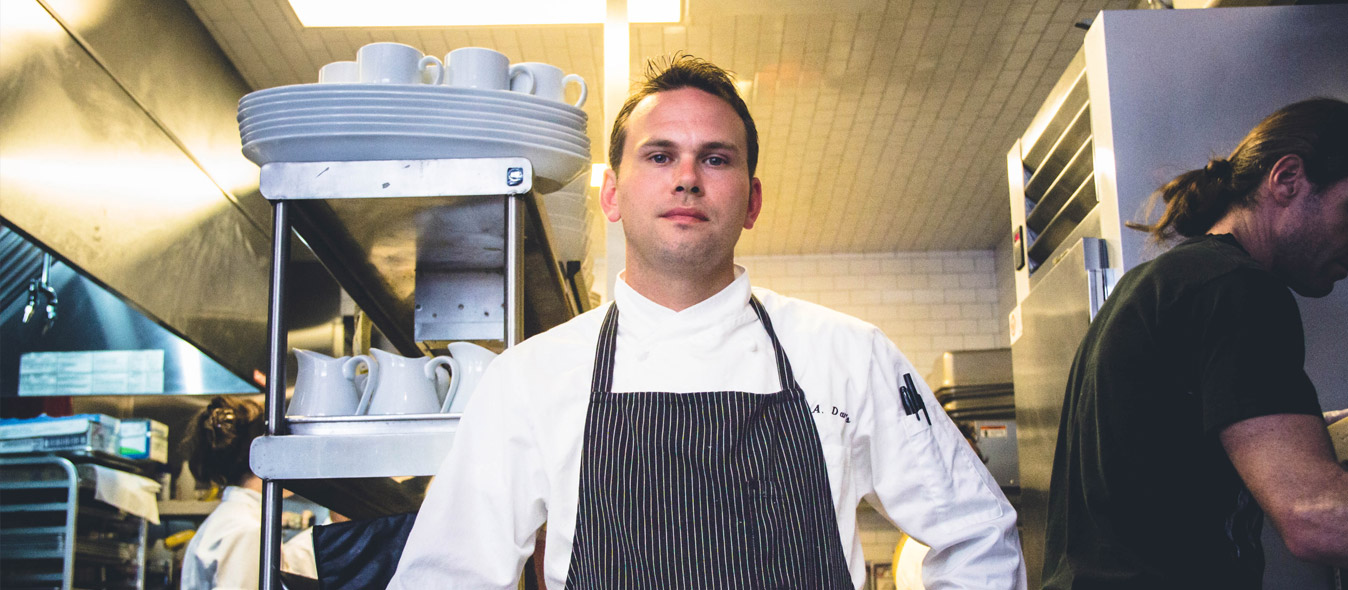
Becoming chef is the prized goal at the end of a long tunnel. What do you tell aspiring chefs?
I always tell my cooks this: don’t go after the money, don’t take that extra dollar an hour, work for the best restaurant you can, somewhere you’re passionate about, somewhere you feel good about the food, and once you’re in the door, work as hard as you can. Put your head down, don’t complain, don’t call out sick. There are plenty of people that want to cook out there, very few of them become chefs. The difference between the people that do and don’t is work ethic, plain and simple. If you’re going to go ahead and make a career out of this, you gotta be willing to sacrifice. You have to be able to be the best person at what you’re doing in the kitchen at all times. Take pride in everything you do, don’t leave any stone unturned. If you leave a messy station or cut corners, this isn’t the right career for you. Pursuit of perfection.
It’s tough because you get tired and there are easier ways out. There are plenty of people that take a job at a hotel that’s union, and they’ll get their scheduled raises, and they’ll do the bare minimum and eat through life. But that’s accepting mediocrity. You should always be trying to do better, and working harder than anybody else. You will grow and rise to the top.
There are plenty of people that want to cook out there, very few of them become chefs. The difference between the people that do and don’t is work ethic, plain and simple.
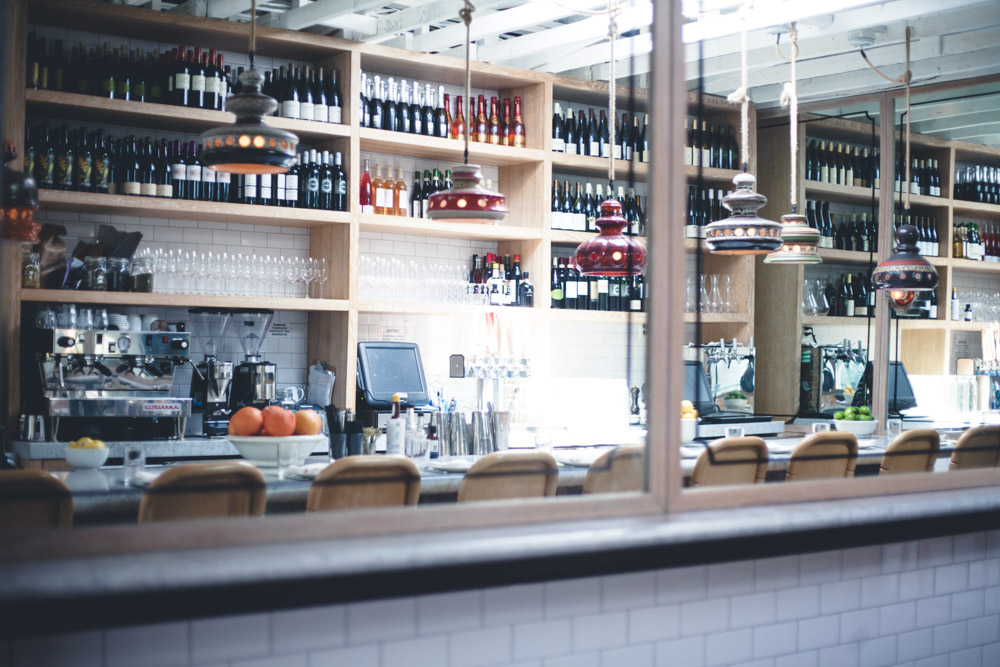
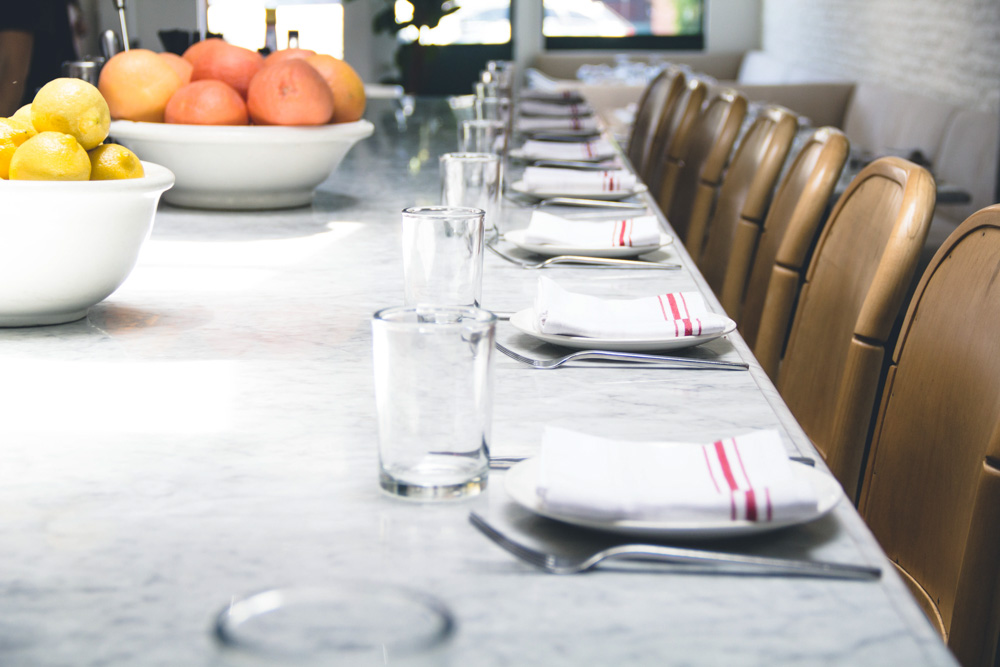
—
Salt Air
1616 Abbot Kinney Blvd.
Venice, CA 90291





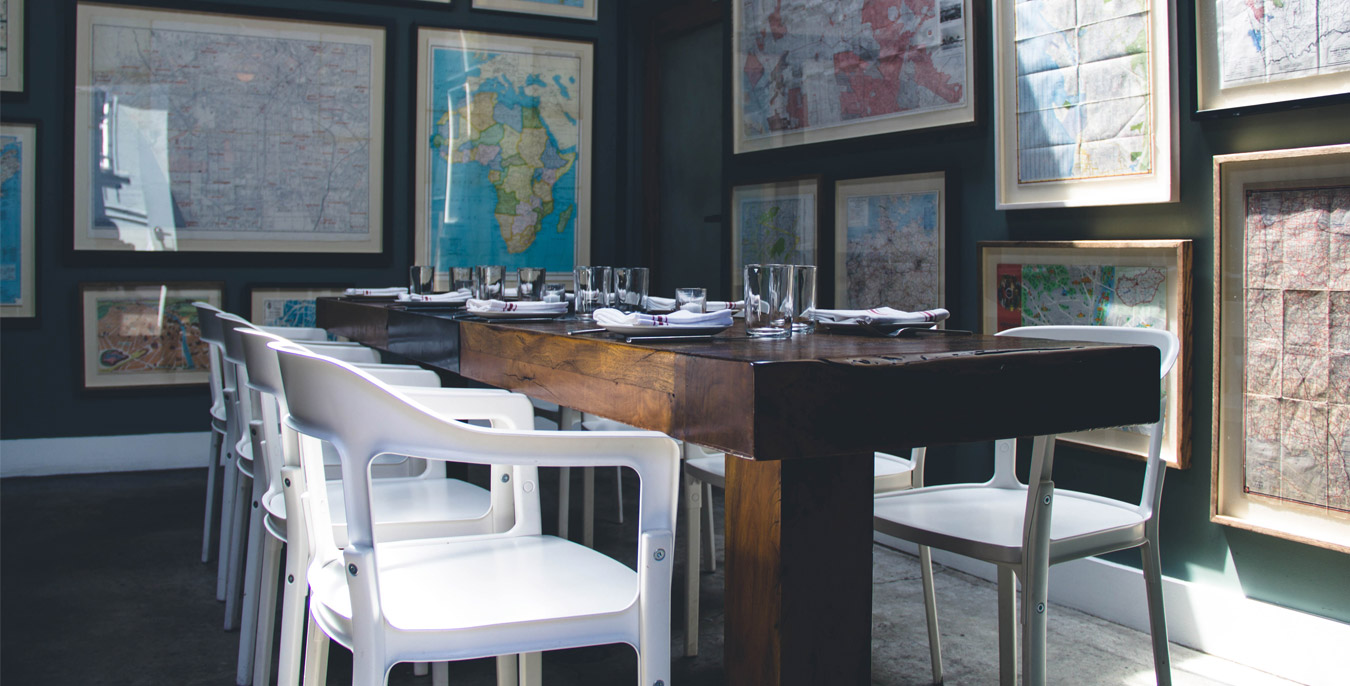

Our comments section is for members only.
Join today to gain exclusive access.